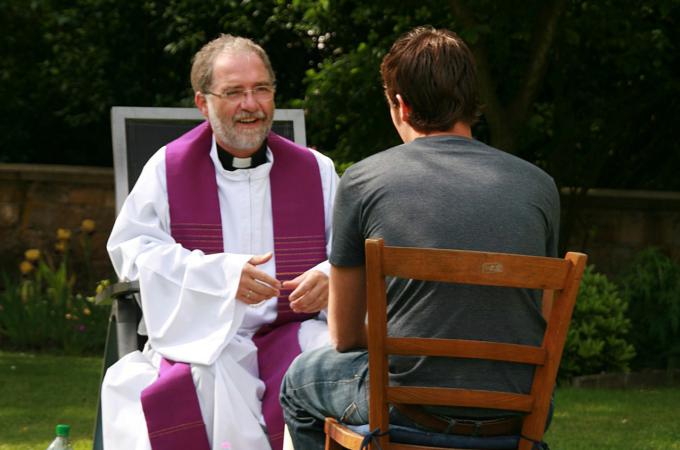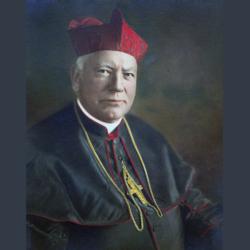A New Assault on the Sacramental Seal of Confession
Presently, all 50 states and the District of Columbia have statues protecting and upholding the sacramental seal of confession or, more generally, the inviolable confidentiality of some form of clergy-faithful communication.
There have been attempts to challenge it, like in 1996, when Oregon prison officials surreptitiously recorded inmate Conan Wayne Hale's confession to Father Timothy Mockaitis and sought unsuccessfully to use it in court, or when in 2008 Rebecca Mayeux sued Father Jeffrey Bayhi and the Diocese of Baton Rouge for Bayhi's allegedly not reporting to authorities what Mayeux says she had said to him in confession in 2008.
Ultimately both attempts failed.
Now there are new efforts to undermine the absolute secrecy of priest-penitent communications under the mistaken idea that it will help in the fight against the abuse of children or teens.
We saw this last year in Australia, where the territories of Tasmania, South Australia, and the Australian Capital passed legislation to force priests to break the seal of confession when someone confesses to them the sexual abuse of a minor.
We are now seeing it in California, where state Senator Jerry Hill has introduced a bill (SB 360) that would remove priest-penitent communications from the list of exemptions under the Child Abuse and Neglect Reporting Act, in effect requiring priests to break the sacramental seal of confession and file an abuse report should he find out in the confessional that a child is suffering some form of abuse. Priests in California, like 45 other groups of professionals, are already required to report abuse allegations if they become aware of them outside of the confessional. Now, if they fail to disclose what they heard in the confessional, they would be liable to six months in jail, a $1,000 fine or both.
The reason Senator Hill has given for introducing the bill is rhetorically powerful. It is about, he said, "the safety and protection of children. Individuals who harm children or are suspected of harming children must be reported so a timely investigation of law enforcement can occur. The law should apply equally to all professionals ... with no exceptions period. The exemption for clergy only protects the abuser and places children at further risk."
Either one is on the side of children, he implies, or the side of abusers; the protection of children must trump any and all other concerns. The Church's opposition and resistance to this egregious violation of religious freedom shows, some calumniously allege, that it is more concerned about its "rituals" than abused kids.
It's noteworthy that Senator Hill is not going after, for example, the attorney-client privilege in his desire to advance child safety and protection, a failure that, some might argue, "only protects the abuser and places children at further risk." It's not just because such an attempt would face obvious constitutional challenges from every defense lawyer in the country. It's because everyone acknowledges that as important as protecting children is, there is another important principle and set of rights involved: a recognition that in attacking attorney-client privilege for one noble cause -- like the protection of children -- the privilege in every circumstance would be undermined in such a way that a person's ability to a fair trial might be severely compromised. Few politicians, even those who sincerely want to do everything possible to protect children, would subvert their own right to a fair trial.
I make this point because it puts into a relief an important part of the religious freedom aspect of what Senator Hill is trying to do. Attacks on the sacramental seal of confession never come from those who regularly avail themselves of the Sacrament of Penance and Reconciliation. If politicians were frequent recipients of the sacrament, I don't think they would be pushing for legislation to force priests to reveal the contents of any confession, since TMZ and the National Enquirer would probably be willing to build a few posh basilicas in order to get priests to divulge the dirt that politicians and other public figures have confessed. Just like attorney-client privilege, the sacred inviolability of the seal protects all who come, and only those who would never see a need for the service would take it for granted. The sacramental secrecy allows everyone to be able to approach for spiritual help, including victims looking for healing or abusers with guilty consciences seeking forgiveness.
At a practical level, in the case of those who have suffered abuse, no confessor would simply send them on the way with pious platitudes, especially children. A priest would try to assist them to get help to deal with the trauma, to stop the abuse if it is ongoing, or to bring the perpetrator to justice. After building a rapport of trust, most would say, "After confession, would you be willing to repeat these things to me outside of the confessional so that I could help you even more?"
This is routine, for all types of situations where a penitent needs help, and most take the priest up on the offer. If the penitent is not willing despite the priest's attempts, then the priest has recourse to prayer, hoping that the seeds of encouragement and advice given will bear fruit and the person will eventually seek help. But in such a situation, it's clear that the reason why the person would have come to the priest even to talk about it was because the person knew that the priest could never talk about it with anyone else. Remove the protection of the seal and such conversations, which could be decisive first steps, might never occur.
In the case of abusers, if they knew that priests would be de facto state informants legally obliged to betray their confidence and pass on their crimes to police at the risk of fines or imprisonment, do you think they would even go near a confessional? Child abusers are notoriously secretive. If one approaches a priest to deal with the guilt of what he or she has done, that's an opportunity for priests to help the person get help and do reparation, including turning oneself in, as priests seek to do whenever serious criminals come to confession. It's ludicrous to think confessors would give them three Our Fathers as a penance and send them on their way. Sometimes confession might be one of the few chances to try to stop the abuser before others are hurt. Remove the seal and these conversations will never happen.
Moreover, there's the practical consideration that confessions are often anonymous, not only behind screens but also with penitents coming to priests in parishes or shrines who do not know them. In such circumstances, would a priest be expected, as soon as someone mentions some form of abuse suffered or committed, to say to the intentionally anonymous penitent, "What is your full name and address?" and start to fill out a child abuse report, or somehow to restrain the unknown penitent until child protective services or the police arrive?
The last practical consideration is the most important: priests simply won't break the seal, even at the threat of imprisonment or fines. They won't break it, not just because they would be automatically excommunicated for doing so, but because they realize that it would totally undermine one of the two sacraments that they uniquely are able to offer. By his ordination, a priest has made the commitment never to reveal what anyone says to him in the Sacrament of Penance, even to save his own life or the life of another, to defend himself against a false accusation, or to avert a public disaster. The sacramental seal is something that makes even the most humanly inadequate, faint-hearted, easily intimidated, conflict adverse and pusillanimous priest ready for heroism. Priests have made this commitment to facilitate others' approach without fear the Lamb of God to receive his mercy. Several priests, like St. John Nepomuk (d. 1393), St. Mateo Correa (d. 1927), Bd. Felipe Císcar Puig (d. 1936) and Bd. Fernando Olmedo (d. 1936) were executed for protecting it.
Few Catholics appreciate adequately not only this willingness of a priest to die to protect what they confide but also the fact that he routinely protects the secrets they whisper to God throughout his life into eternity. Non-Catholics and those who don't make use of the Sacrament of Penance would understandably appreciate this willingness even less.
Because of the priests' inviolable adherence to the seal, however, bills like SB 260 are purely symbolic virtue signaling on the part of politicians and a way for a state to try to assert that the laws of God and the Church must be subject to the laws of the land. Over time, however, they could easily be used as a means to damage the Church, by prosecuting faithful priests as criminals for protecting whatever any penitent tells him, and by giving the faithful a reason not to frequent the Sacrament, under the hysteria that priests might somehow share what they say with third parties.
God always seeks to bring good out of evil. Two of the goods that we can pray God will bring out of the new phase of assaults on sacramental seal are, first, that people will grow in greater awareness and esteem for confession and priests' absolute willingness to suffer and die to offer it and to protect what people confess; and, second, knowing that heroic willingness, come to receive it more frequently and fruitfully.
- Father Roger J. Landry is a priest of the Diocese of Fall River, Massachusetts, who works for the Holy See’s Permanent Observer Mission to the United Nations.



















